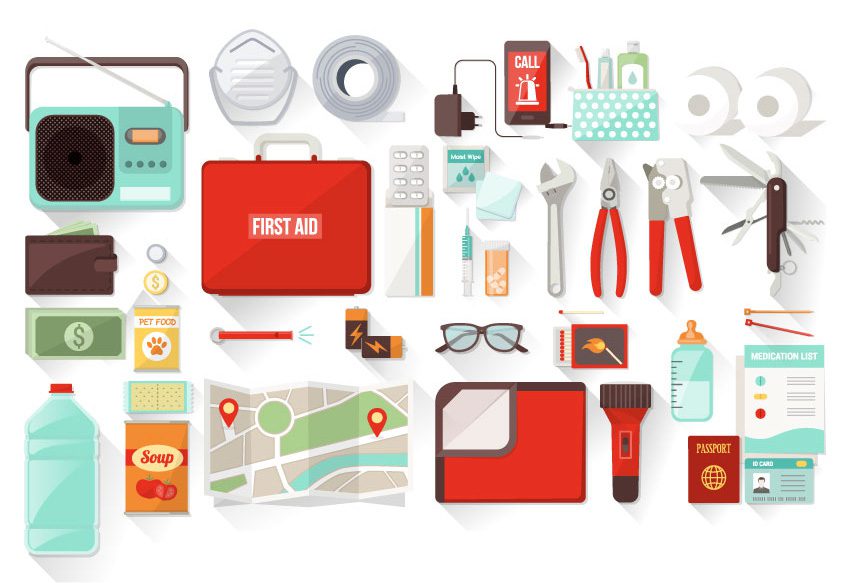
[dropcap]From[/dropcap] warm-weather thunderstorms to ice storms in the winter, weather-related power outages are bound to happen.
Whether you’re facing extreme hot or cold, it is important to be prepared when your power is out for an extended period. The biggest concerns with outages are the health risks, including heat stroke or hypothermia, and the misuse of alternative heating sources.
“We see an increase in injuries and deaths caused by using generators without proper ventilation, using outdoor grills inside the house, using gas ovens to heat the home, leaving candles burning overnight or running a car in the garage to charge phone batteries,” says Keli Cain with the Oklahoma Department of Emergency Management. “Be sure to follow all safety precautions during a power outage as you would during other times.”
Cain shares a few other tips for being prepared for power outages.
HAVE A PLAN
To start, think through what you might need for your home and vehicle in both cold and hot weather for a weeklong power outage. Ask yourself: How long will you be able to stay in your home without heating or air conditioning? Do you have family or friends you could stay with if necessary? Are you able to buy a generator? Also consider maintaining the current temperature in your home during the day by keeping windows, doors and curtains closed as soon as the power goes out. Have a kit for both your home and your vehicle with the supplies you may need. Don’t rely on shopping for supplies after a power outage; stores may be closed or may sell out of the basics.
CREATE AN EMERGENCY KIT
An emergency kit should be filled with enough supplies to last at least 72 hours. This would include enough water and nonperishable food for everyone in your household, as well as flashlights, lamps, blankets, medications, extra batteries and any other provisions you may need. Include a copy of your plans for dealing with the power outage.
KNOW YOUR RESOURCES
Resources are often available at emergency shelters, churches and cooling/warming stations run by the American Red Cross. Contact your local American Red Cross chapter or emergency management office for information. You can also call 211 for referrals to non-emergency resources available in your area.
UP A CREEK WITHOUT A PADDLE
If you’re not prepared for a weather-related power outage, research store availability and road safety before venturing out for supplies. Don’t forget to dress appropriately for traveling in dangerous weather conditions. If you can go to the store, stock up to avoid multiple trips. If necessary, ask nearby friends and neighbors for supplies until you are able to get to the store.
Visit www.ok.gov/OEM/Programs_&_Services/Preparedness for more details on how to create an emergency plan and for other safety tips.
























